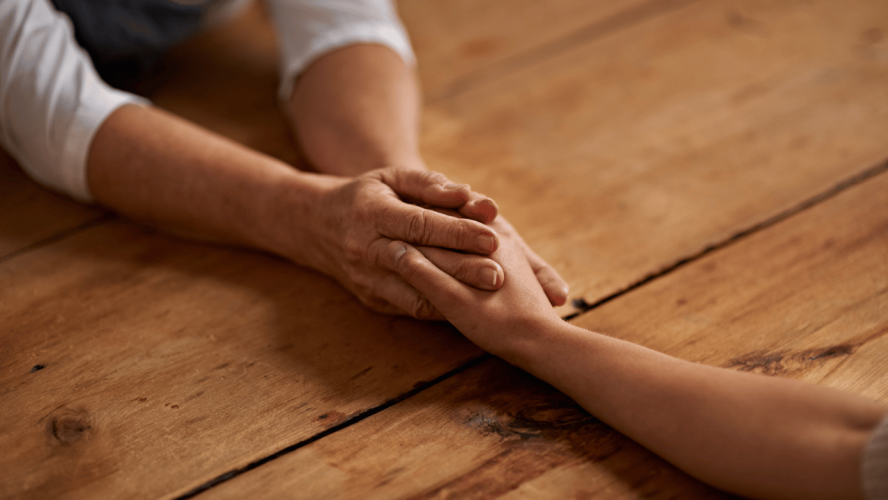Empathy, powered by our brain’s mirror neurons, is the unseen force that deeply connects us to others and makes our relationships more fulfilling, as discovered on my podcast episode ‘The bonds that bind’.

Imagine sitting in a movie theatre, completely absorbed in a gripping scene where the hero is dangling precariously from a cliff. Your heart races, palms sweat, and you find yourself leaning forward in your seat, as if you could somehow help pull them to safety. But why do you feel this intense connection to someone who doesn’t even exist outside of the screen? The answer lies hidden within the intricate workings of our brains, specifically in something called mirror neurons. Discovered somewhat serendipitously by a team of Italian researchers in the 1990s, mirror neurons are a fascinating set of brain cells that react not only when we perform an action but also when we observe someone else performing the same action.
Mirror neurons and empathy
This neural mirroring allows us to directly experience the pain, joy, or tension someone else is going through, without needing to consciously think about it. Professor Dr. Grit Hein of the University Hospital Würzburg’s Center of Mental Health has conducted experiments in this field. Utilising Computational Modeling and functional Magnetic Resonance Imaging (fMRI), her experiments asked participants to view videos of people experiencing pain and rate their empathy levels. They then saw others’ reactions to the same videos, influencing their subsequent empathy ratings towards new subjects. One of the standout findings of her research is the concept of observational reinforcement learning – the idea that witnessing the empathetic reactions of others can actually teach us to modulate our own empathy. The neural changes measured in the fMRI scanner were reflected in altered connectivity of the anterior insula, a brain region associated with empathy processing. The studies demonstrated that empathy could increase or decrease based on witnessing empathetic or non-empathetic behaviour, with changes in brain activity confirming this learning effect.

Empathy often gets boiled down to simply understanding what someone else is feeling, but it’s so much more than that. As these experiments show, empathy involves a deep, visceral connection that allows us to feel with others, not just for them. This isn’t just about knowing your friend is sad, but also about feeling that sadness with them. This shared emotional ground can turn a simple conversation into a moment of deep connection. It’s the “super glue” that holds relationships together, especially when the going gets tough.
Empathy strengthens connections
Empathy does more than just foster emotional intimacy. It also paves the way for more effective communication. “When we empathise, we’re more likely to approach conversations with kindness and understanding, rather than judgement or advice-giving. This can be particularly powerful in resolving conflicts, where empathising with the other person’s perspective can lead to compromises that feel satisfying to both parties,” says Dr Aman Bhonsle, consulting psychosocial analyst and relationship counsellor. Moreover, the act of sharing and understanding emotions promotes a sense of security and trust. When people feel understood, they’re more likely to open up, share more deeply, and support each other through life’s ups and downs. Transformational psychotherapist Dr Maria Zofia Kempinska had told me, “If you think that you’ve got somebody around you who is in a vulnerable situation, don’t be afraid to ask a direct question, because often people who are in a rather vulnerable state won’t tell you, and only by a direct question will they answer.” It’s a virtuous cycle rather than a vicious one: empathy strengthens relationships, and strong relationships deepen empathy.




Here’s another scenario: You’ve had a rough day, and everything feels like it’s going wrong. You call up a friend to vent, and instead of brushing off your feelings or jumping straight to solutions, they just get it. They acknowledge how tough that must be for you, and suddenly, you don’t feel so alone. That’s empathy working its magic, turning a bad day into an opportunity for connection.
Find common ground

Ever been in a heated argument that suddenly cooled down because one person took a moment to say, “I see where you’re coming from”? That’s empathy, turning potential relationship breakers into moments of bonding. When we’re empathetic, we become part of a mutual support system. It’s the difference between a friend who offers a shoulder to cry on during a break-up and the one who just doesn’t get why you’re still hung up on your ex. Feeling understood and supported can make all the difference in the world.
Tips for developing empathy:
Empathy might come more naturally to some than others, but it's a skill that can be developed and nurtured. Here are practical tips.
1) Active listening: Pay full attention when someone is speaking to you, without planning your response. Listen with the intention to understand their perspective fully.
2) Perspective-taking: Make a conscious effort to imagine how the other person is feeling. Ask yourself, "How would I feel in their shoes?" This can help to deepen your empathy.
3) Express understanding: Once you've taken the time to understand the other person's perspective, express that understanding back to them. This validation can be incredibly affirming and strengthens bonds.
4) Practise mindfulness: Mindfulness practices such as journaling and meditation can enhance your ability to be present and attuned to your own feelings and those of others. This heightened awareness can improve your empathic responses.
5) Seek diverse perspectives: Exposing yourself to stories and experiences different from your own can broaden your understanding of the human experience, fostering a deeper empathy for people from all walks of life.

